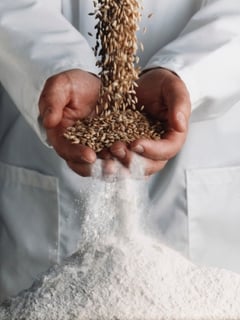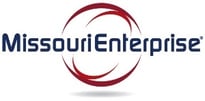 Written by Ken Wunderlich, IMEC Technical Specialist
Written by Ken Wunderlich, IMEC Technical Specialist
Food Safety rules, regulations and requirements apply to many types of companies, even some you might not think of, like ingredients and packaging suppliers, the packers themselves, warehousing and storage providers, trucking and logistics partners… every company that handles food on the journey from farm to table. If your company handles or touches products in the food chain, or if you want to get into that industry, there are strict rules you have to play by, but they don’t need to be overwhelming.
Companies big and small make important contributions putting food on the table locally and worldwide. Small farmers, for example, serve a vital role in supplying local farmers’ markets and retailers, where Food Safety management is a little less daunting because they literally control the process from the farm to the shelf. You’ve heard it before, and it’s true: Small Farmers are the backbone of America, and many make a good honest living supplying their local communities.
But if you want to grow and sell your food products beyond your immediate local markets, you need to ensure important Food Safety standards and certifications are in place, and that can seem a daunting task. Even the acronyms and initials themselves sound scary, don’t they? FDA, USDA, HACCP, FSMA and many, many more. These don’t have to be a brick wall stopping you from entering the food industry or growing your company. You could set up compliance standards and seek certifications yourself…it’s been done before…but you can dramatically shorten your path and lessen the pain with the help a qualified Food Safety expert. Someone who’s trained and certified in Food Safety compliance can answer your questions from top to bottom, and they’ll know what you need to do and where you need to go to get started, implement, expand and grow.
For example, a Food Safety expert could tell you that on the most basic level, an FDA registration might be all you need to get started in your local food market. The FDA will expect you to establish and implement appropriate food safety standards, and they’ll audit you periodically to ensure you’re following the rules to put out safe product, but in this scenario it’s a matter of being “in compliance”, you don’t necessarily need “certifications”. But understandably, most people don’t know where to start…not even where to place that first phone call. You can save a lot of time, money and aggravation by engaging a qualified Food Safety expert right from the beginning. Make that your first call.

If you’re looking to grow into regional or national food related markets, that’s where a number of certifications and requirements will really come into play. It’s a confusing sea of information and mandates, a moving target that’s consistently undergoing updates and revisions. But you can achieve that goal too, and this time, you’d be ill advised to think about trying to go it alone. Again, the expertise of a fully qualified, certified Food Safety expert will be an invaluable investment that can make the difference between your success and failure.
So who are some of the players you need to accommodate, and what types of compliance or certifications do you need if you want to do business or grow in the food industry? The Food and Drug Administration (FDA) will be a main one for sure. You’ll need to know about the FDA’s Food Safety Modernization Act (FSMA), and the changes that are occurring on a routine basis. If you deal in seafood, meat, poultry and juice production, you might already be regulated by the USDA. If not, you will need to begin working with them. Then add HACCP to the list (“HASS-ip”, Hazard Analysis & Critical Control Points). These are key programs to address unintentional hazards that can occur at food facilities.
Companies that are already in the food industry regionally, nationally or internationally know these things well, and the bigger the organization, the more they know about the challenges of meeting the demands of a slew of compliance organizations and regulatory bodies that govern best practices and requirements for maintaining food safety throughout the food chain. (See a partial listing below.) Compliance at this level takes you into the realm of highly specialized areas of expertise, and even the biggest food industry companies rely on outside experts to help them implement, assess and monitor their ongoing food safety initiatives.
With the right guidance and expertise, you can enter the food industry and win. And yes, you can successfully grow your food related business and win even bigger. Whether you’re a small fish or a big whale, you make a smart move when you seek the guidance of a qualified Food Safety expert to help you meet and overcome the challenges of compliance on a local, regional, national or international level. Seek out the professional Food Safety expertise you need, research their qualifications, vet them to be sure they know what they’re doing, and you will save incredible amounts of time and money in the long run.
Some of the laws, best practices, organizations, regulatory bodies and advocacy groups that play a major role in Food Safety compliance and oversight:
| AMI (American Meat Institute) |
| BRC (British Retail Consortium) |
| CFSAN (FDA’s Center for Food Safety & Applied Nutrition) |
| CMC (Canadian Meat Council) |
| FDA (Food & Drug Administration) |
| FPA (Food Processors Association) |
| FSIS (USDA’s Food Safety & Inspection Service) |
| FSMA (Food Safety Modernization Act) |
| FSSC (Food Safety System Certification) |
| GAP (Good Agricultural Practices) |
| GFSI (Global Food Safety Initiative) |
| GHP (Good Handling Practices) |
| GMA (Grocery Manufacturers Association) |
| GMP (Good Manufacturing Practices) |
| HACCP (Hazard Analysis & Critical Control Points) |
| SOP (Standard Operating Procedures) |
| HARPC (Hazard Analysis & Risk-Based Preventive Control) |
| IFS (International Food Standard) |
| ISO (International Organization for Standardization) |
| PRP (Prerequisite Program) |
| SSOP (Sanitation Standard Operating Procedures) |
| SQF (Safe Quality Food) |
| USDA (U.S. Department of Agriculture) |
| Customer Specific Requirements |
Links in article:
www.fda.gov
www.usda.gov
www.fda.gov/Food/GuidanceRegulation/HACCP/
www.fda.gov/Food/GuidanceRegulation/FSMA/

This article was originally published by Missouri Enterprise - An MEP National Network partner.. View the original article HERE.




